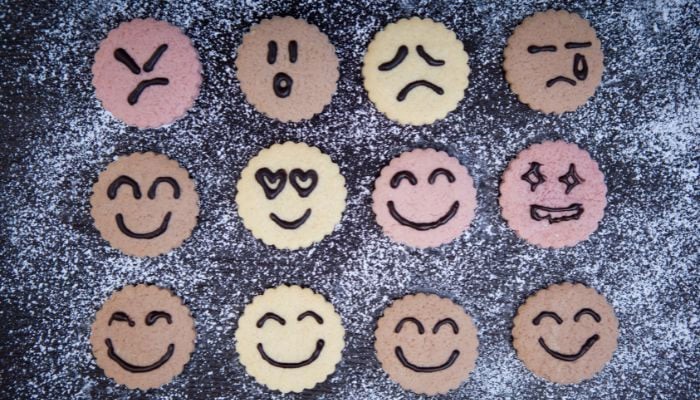Greetings, Haya
I hope all is okay with you. Though I’m not entirely sure what my issue is, I’ll try to explain. For a very long time, my friends and family have called me “emotionally unavailable,” “heartless,” and “emotionless.” My friends, who have known me for over 15 years, would probably characterize me as mysterious or as someone who is normally extremely cool and laid back.
In the relationship I’m in right now, my partner has informed me on several occasions that my facial expressions give the impression that I’m always worn out, bored, or uninterested, which I don’t think is accurate, but he’s not the only one.
What I do know about myself, though, is that I struggle to communicate and display my feelings; it takes me a long time to realize how I truly feel; I also find it frightening to think of myself as dependant on anyone; I also find it difficult to embrace new partnerships. In addition to being cranky, I dislike having people touch or approach me too closely.
Since I come from a loving family and have never experienced trauma or witnessed a failed marriage, I’m not sure what the issue is.
Could you kindly give me some advice on how to improve my ability to express and comprehend my emotions? I believe that improving my emotional intelligence would also increase my confidence because it will allow me to be more outgoing and self-assured.
My loved ones believe that I’m not available emotionally. How am I going to fix that?
To my dear reader,
I’ve heard that you’re having emotional difficulties. It can be difficult to navigate the complexities of relationships and emotions, and it appears that you want to create a space where you feel comfortable being intimate with people and with yourself. It appears that a major part of what you are going through right now is a fear of closeness. Let’s investigate this more.
First, think about what “emotional unavailability” means to you and how that feels. Think about the comments your friends have made about you; do they reflect how you see yourself? It’s clear that you have difficulty articulating your feelings, and your answers may have some avoidance in them. This avoidance may be a defense technique, a means of shielding oneself from feelings that could become overpowering.
I’m interested in your hesitation to communicate your feelings as well as the connection you make between emotional expression and dependency. What is the underlying belief system in this context? Why do you think that being yourself means that you are reliant on someone else? How would it feel to begin clearing out emotional space inside of you? What is it that you find difficult?
What feelings does expressing emotions evoke in you? What is the dependency theory based on? Why do you think having an emotional connection is the same as being dependent? Does your inability or unwillingness to accept new partnerships exist? What comes up for you when someone gets too close? In your opinion, what would transpire if you felt an emotional connection to other people?
Examining these ideas and queries may reveal underlying worries or fears. Understanding how you feel about new relationships and the unease that comes from someone getting too close can also be quite insightful.
Avoidance usually results from a dread of facing uncomfortable emotions, as seen by your propensity to take a long time to recognize your sentiments. It is a fear-based reaction based on what you would have to experience.
Connections frequently serve as mirrors for us. They reveal aspects of ourselves that we could be hiding. They point out the areas that need repair. Limiting ideas you may have about yourself are hinted at by your self-perception, which includes the assumption that you find it difficult to express your emotions, that it takes you a long time to grasp them, that you dread dependence, and that you reject new connections or physical proximity.
Accepting new connections could be difficult for you as a defense technique to keep emotional distance and shield yourself from any emotional harm. This aversion may also be related to a fear of something going wrong, of being rejected or abandoned, or of the difficulties involved in developing strong emotional bonds. It is important to recognize these apprehensions and misgivings.
In therapy, examining these facets entails delving into your personal history, family dynamics, and important connections. The goal of this procedure is to pinpoint the underlying events and beliefs that have shaped your current routines. You seem to be attempting to intellectualize feelings. Emotions require feeling and experiencing by nature.
The desire for autonomy and self-reliance that underlies fear of dependency may have its origins in personal beliefs or in prior experiences. Examining potential contributing reasons to the emergence of such phobia may be beneficial. In a similar vein, being wary of new connections could indicate a lack of self-awareness and a fear of the unknown. Even non-traumatic past events may be influencing how you view relationships.
It’s imperative that you begin the process of connecting with yourself and doing inner work if your goal is to live an emotionally free existence. Working with a therapist might be beneficial, as therapeutic therapies could involve several methods to refute and challenge harmful beliefs.
Engaging in experiential exercises in a secure therapeutic environment will help you practice expressing your emotions and being vulnerable. Establishing a therapeutic alliance based on trust is essential as it will provide an example for other positive emotional relationships and offer a safe space to examine and change these patterns.
Recall that this is a gradual process of self-discovery and progress, and that every accomplishment, no matter how tiny, counts as a step forward.
A personal message from a therapist: you will never have a more liberating and freeing journey than the inner one. Wishing you luck!
My loved ones believe that I’m not available emotionally. How am I going to fix that?
Haya Malik is a corporate well-being strategist, psychotherapist, trainer, and practitioner of neuro-linguistic programming (NLP). She specializes in developing well-being-focused organizational cultures and increasing mental health awareness.







